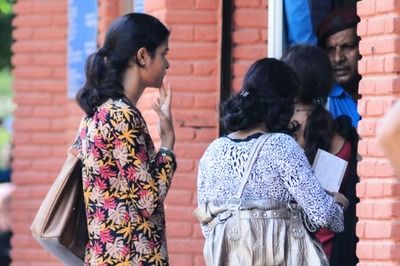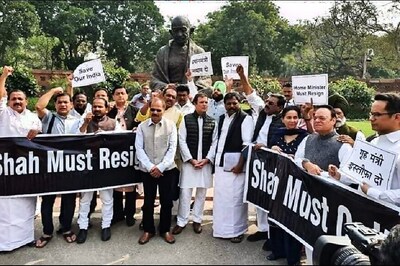
views
The Delhi High Court observed in a recent order that the lack of “irretrievable breakdown of marriage” as grounds for grant of divorce under the Hindu Marriage Act, 1955 (HMA) leads to parties suffering an acrimonious relation with no way to exit.
A bench of Justices Suresh Kumar Kait and Neena Bansal Krishna were hearing an appeal filed by the wife against a divorce petition by the husband, which was allowed on the grounds of cruelty under Section 13(1)(ia) of the HMA.
While refusing to set aside the divorce decree granted to the husband, the division bench pointed out that despite the phenomenal change in social ethos after the enactment of the HMA, the grounds of divorce in the law only rests on “fault theory”. The court said that it is bound by limits as defined under the HMA and unless the fault of the other spouse is shown, the warring parties continue to fight each other and suffer.
“Unless the opposite party was shown to be at fault, whether it was for ‘adultery’, ‘cruelty’, ‘desertion’ or other grounds as specified under Section 13 of the Act, 1955, no divorce can be granted. With the passage of time, experience has shown that many a times, the marriages do not work because of incompatibility and temperamental differences, for which neither party can be blamed,” the bench has said.
While stating that because of the prevalence of this theory, parties end up warring with each other for years to come, only because they have no way of exiting the relationship. “While many debates have been held to introduce “Irretrievable Breakdown of Marriage” as a ground, it has not met the approval and consent of the legislation,” the court said.
As a result, the court went on to dive into the facts of the case, stating that the parties had been living separately for over 15 years. It was also pointed out that the differences had become so deeply entrenched between the parties and they had drifted apart from where, they had no coming back.
In his testimony, the husband had pointed out that his wife was cruel to the extent that she had showed no respect to his family members and had quarrels with the respondent which even resulted in injuries to him. According to the order, complaints were filed time and again by the wife, even under Section 498A of the Indian Penal Code (IPC). Though filing of a criminal complaint per-se cannot be termed as an act of cruelty yet, at the same time, the allegations of cruelty as made in the criminal case(s), should have been substantiated in the divorce proceedings, the court said. It was further stated by the court that no incident of cruelty towards her by the husband could be proved.
After highlighting a catena of judgments, the court said that though disputes emanating from disrespect to the husband and his family members, frequent quarrels resulting in various complaints, may individually be seen as innocuous and day-to-day quibbles, but when they persist over a long period of time, it results in mental agony, for which there is no solution.
A matrimonial relationship resting on irritations and daily fighting became a source of cruelty towards the husband, court said.
While finding no merit in the appeal, the high court upheld the family court order, stating that it saw no purpose in deferring the inevitability of the solution.


















Comments
0 comment